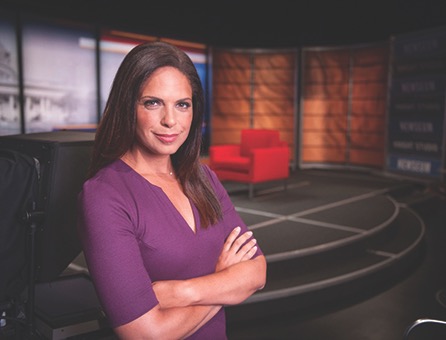The Five Spot: Soledad O’Brien

The smarter way to stay on top of broadcasting and cable industry. Sign up below
You are now subscribed
Your newsletter sign-up was successful
Jumping into a seasno heavy on politics, former CNN anchor Soledad O’Brien starting Sept. 10 will be part of the Sunday-morning TV crew, hosting the magazine show Matter of Fact With Soledad O’Brien, which she will also coproduce with Hearst Television. Long a proponent of pushing those difficult issues people don’t want to discuss, O’Brien sees the show as a new model in political talkers that gives voice to the people most affected by today’s hot-button issues. After a stint as an Al Jazeera America correspondent, O’Brien has been pursuing issues of race and equality through her production company, Starfish Media, and focusing on the Starfish Foundation, the organization she founded to help girls in need make it successfully through college. O’Brien spoke with B&C’s Diana Marszalek about her plans for differentiating the show, and the role journalism plays in spurring change.
How are you going to get people to watch another Sunday talk show?
The Sunday morning shows are very D.C.-heavy, and I don’t want to cover the inside baseball in politics. You have to illuminate important issues and elevate the voices of people who are knee-deep into those issues. On poverty, rarely do you actually get to hear from someone who is poor, who can say, ‘Let me explain why I make bad choices. Let me explain to you about where my money goes and how this works.’
Aren’t viewers pretty burned out on politics at this point?
I would like to expand the definition of politics and look at it in a more interesting way. Politics is the school your kids go to, your job and whether it’s going to leave the country. We have a very thin definition of politics, which is what Hillary and Trump say. People actually care more about how their son is going to pay for college.
Does being a big proponent of racial and gender equality influence your work?
I’ve never thought of myself as an advocate of social change. I think of myself as elevating stories that show different versions of the issues. There’s a lot of stuff that doesn’t happen in this country around social change because people don’t talk about it. If I’m an advocate for anything, it’s for having those conversations. I love unfolding those conversations to the point where people are very uncomfortable, and are trying to understand what is really being discussed.
The smarter way to stay on top of broadcasting and cable industry. Sign up below
How is the broadcasting industry doing on addressing diversity?
We are doing terribly. The only category that’s grown dramatically is Hispanics, and that’s because it was so small to begin with. You can grow from 1% to 2%. And the number of African-Americans is quite poor, quite depressing. It’s really a great loss, especially when race an issue we should be having more conversations about. It’s the same around gender. I see it running my production company. You have to be intentional about these things. You have to sit down and think about the makeup of your company if you don’t want to look up one day and see you are not where you want to be.
How is your foundation working on these issues?
If you want to have access to young people in poverty, you have to do something to help. We had six interns stay in my apartment this summer. If they can’t afford a place to live, they’re stuck. If a girl is in a stable, middle-class family, writing them a check is really great. But if they are not, that check won’t get them through college. It’s very hard to overcome all the things that trip you up.
